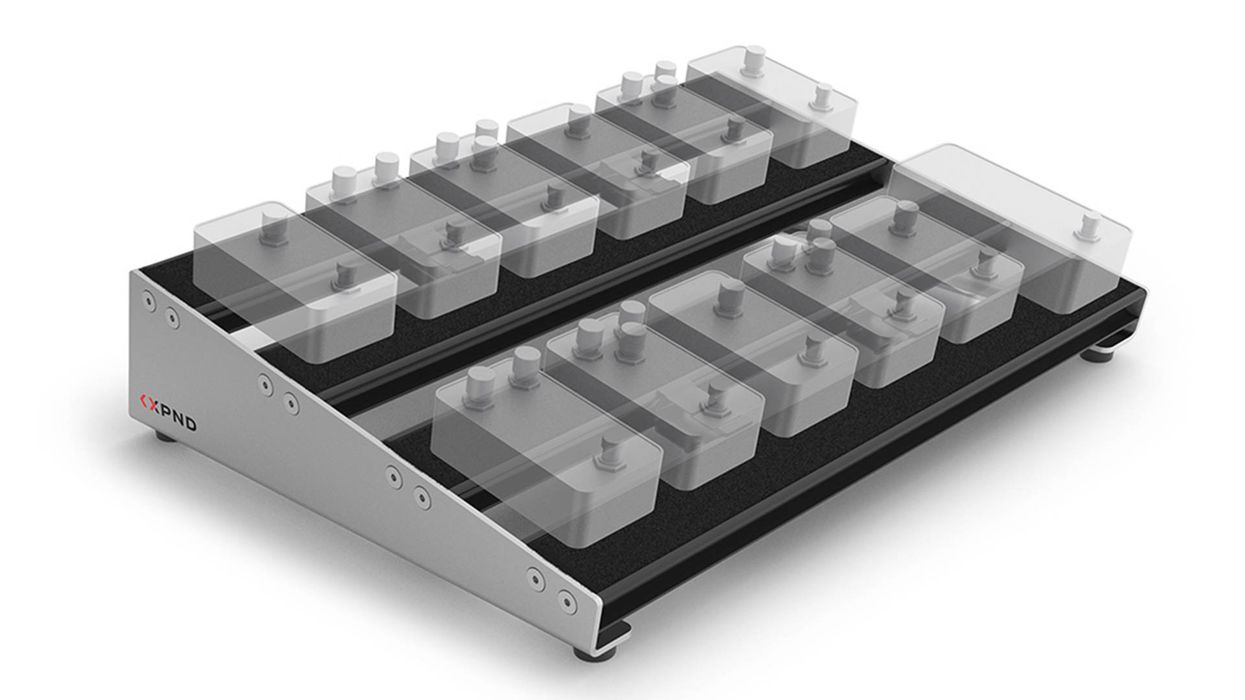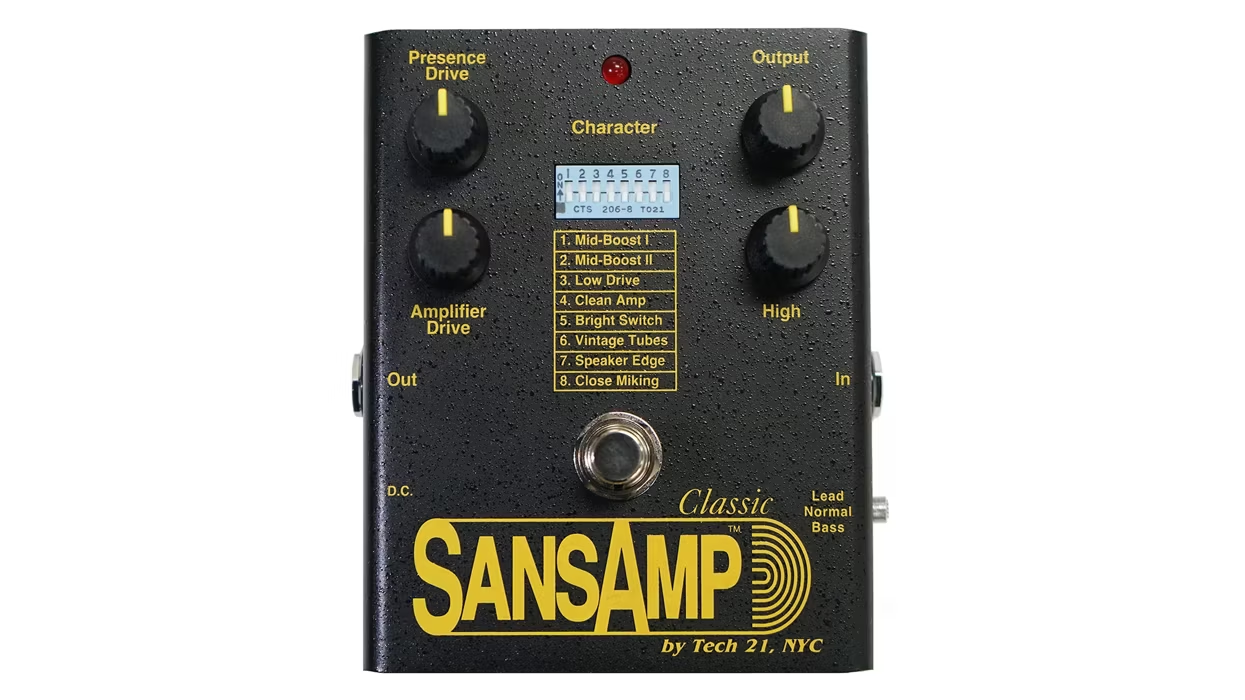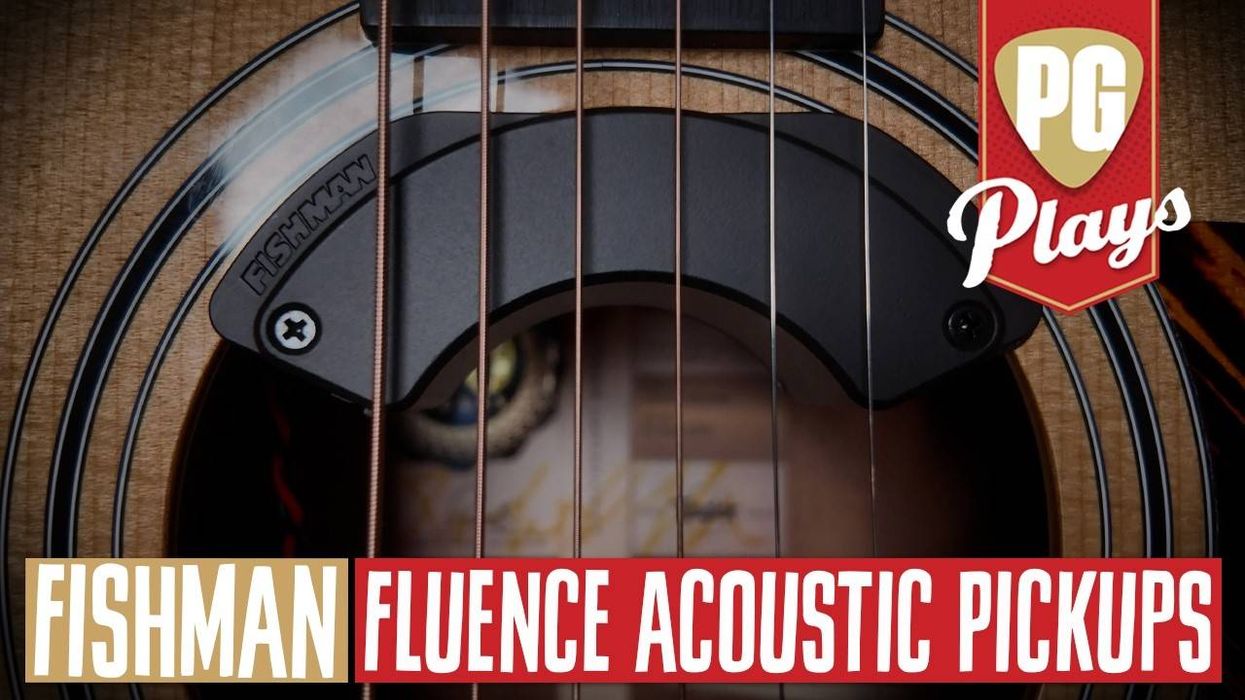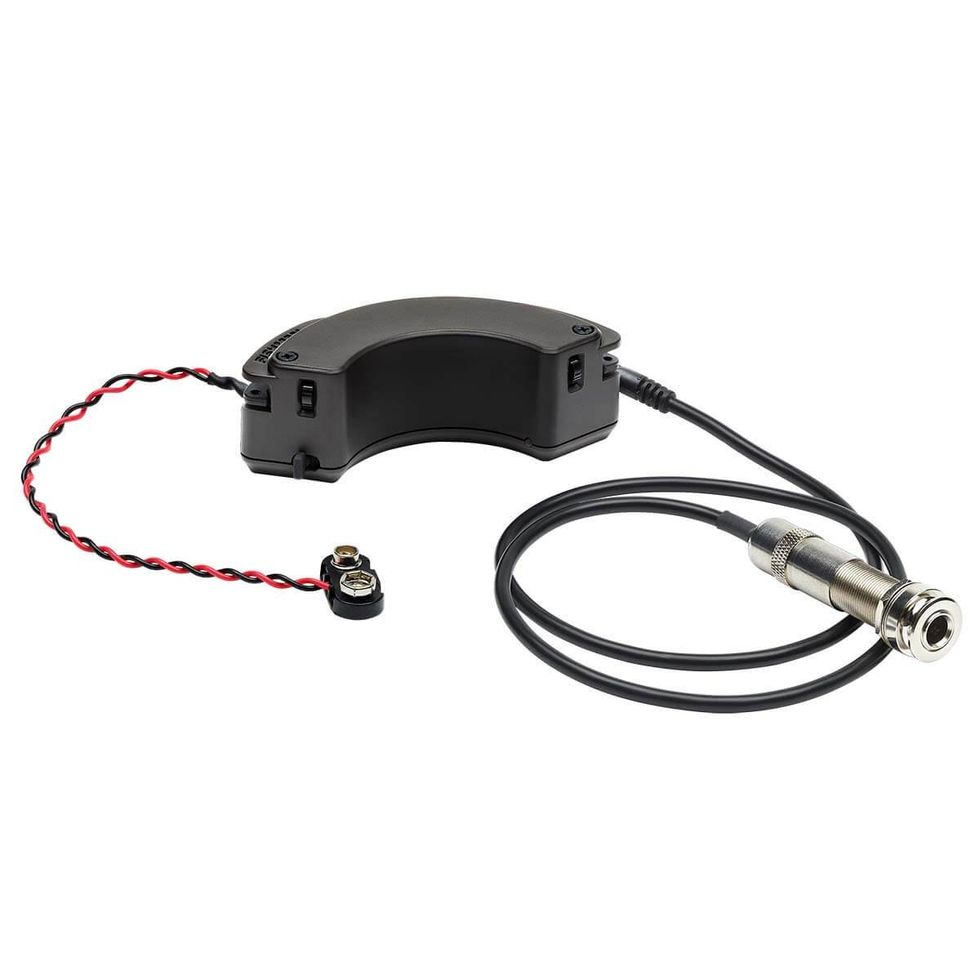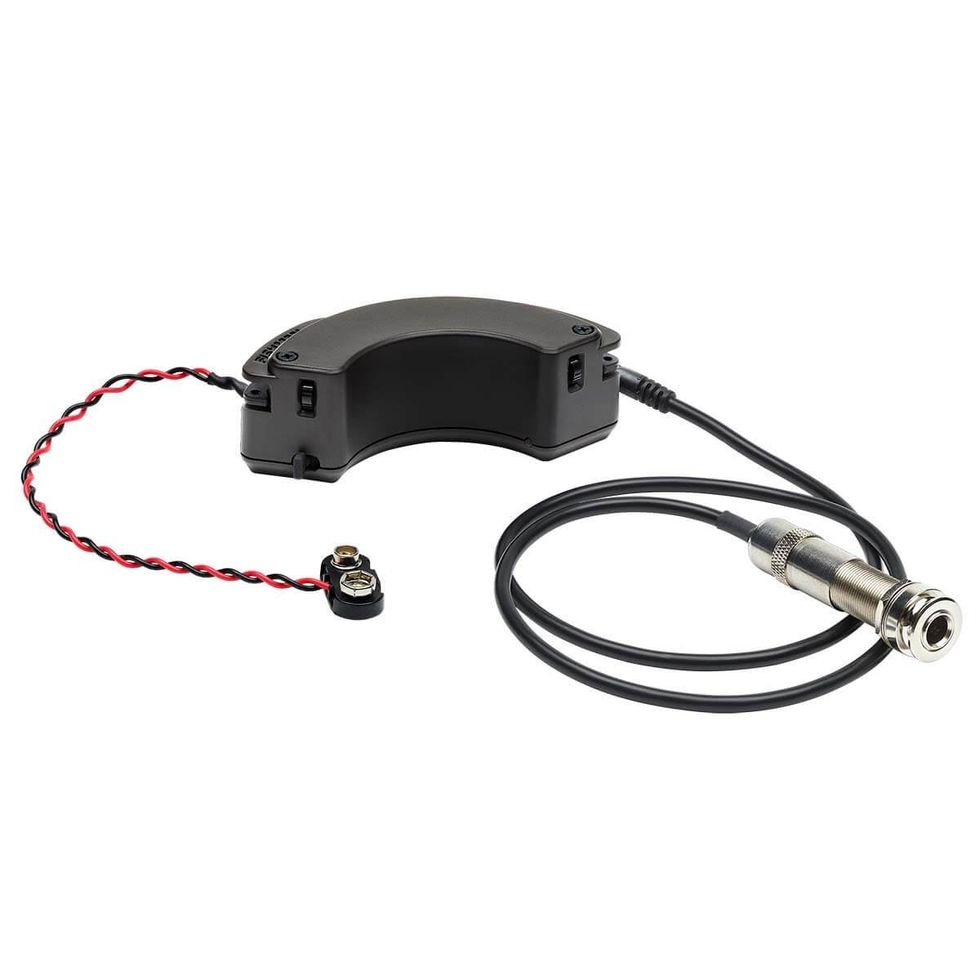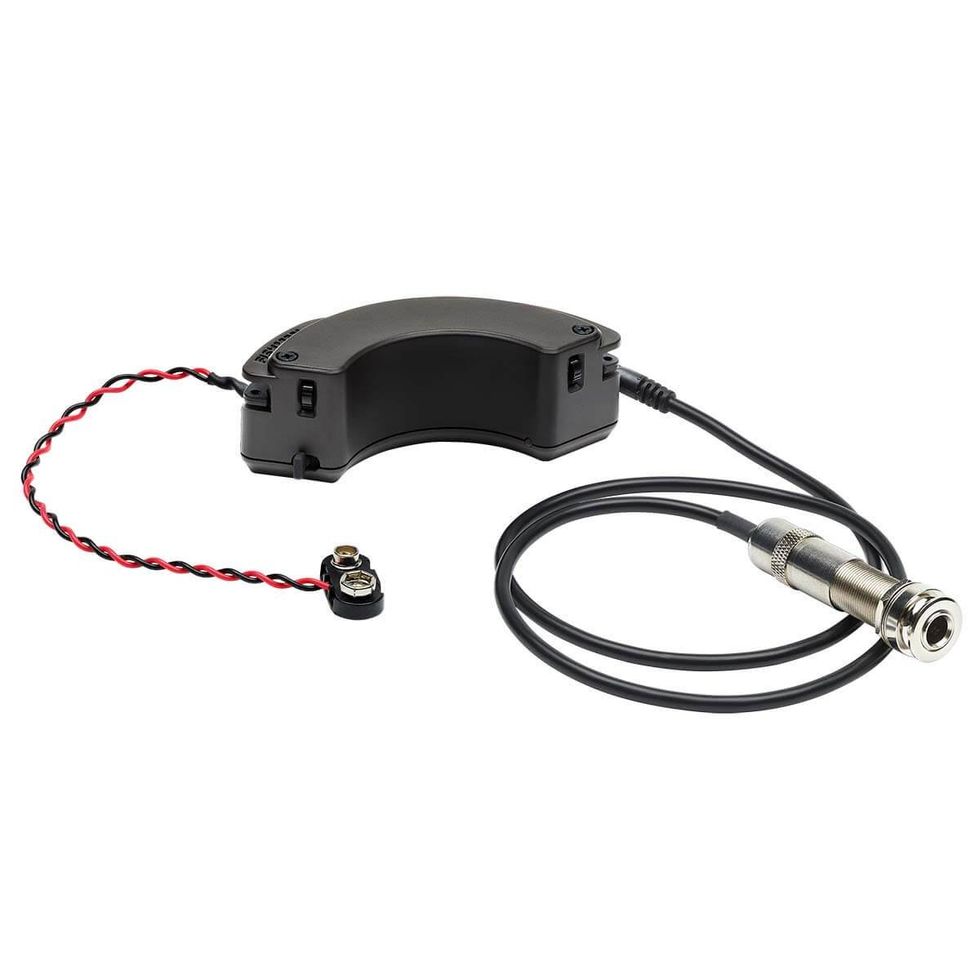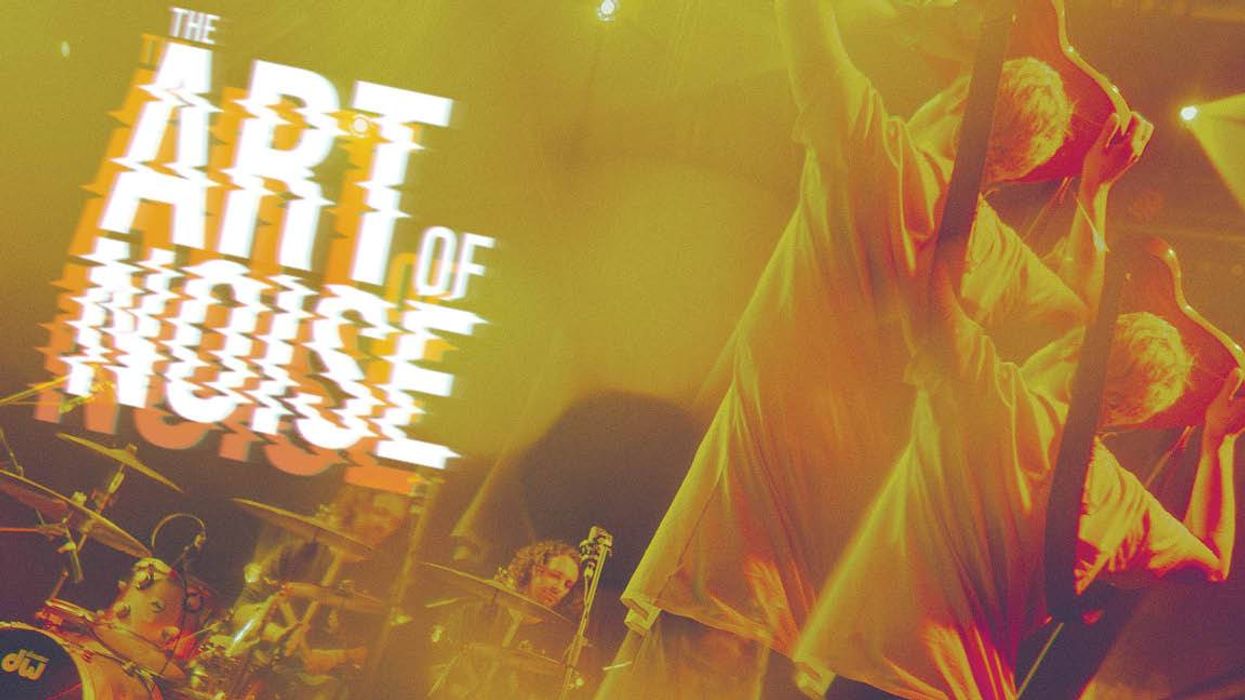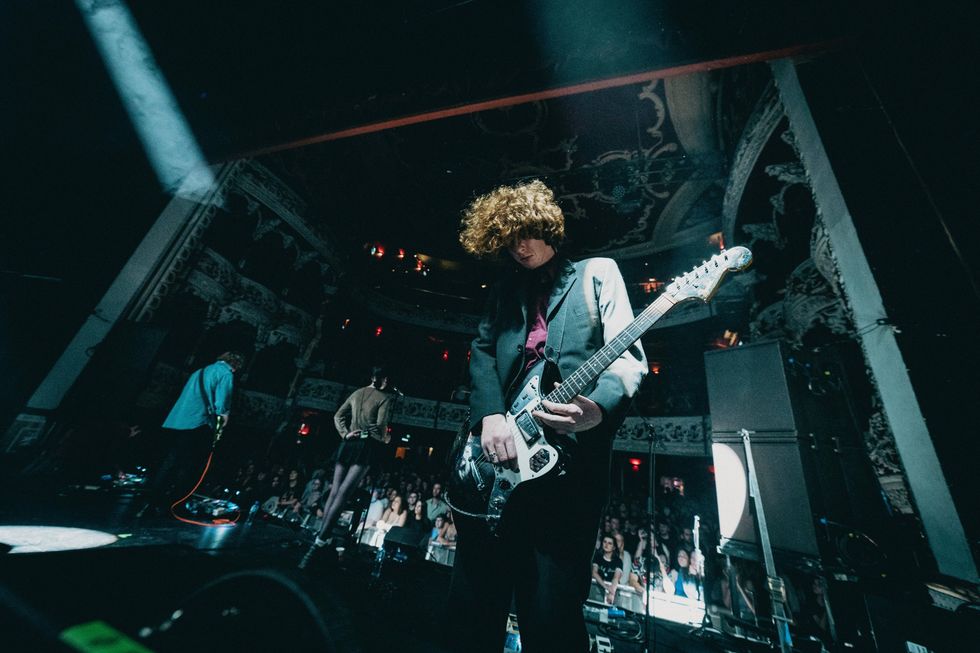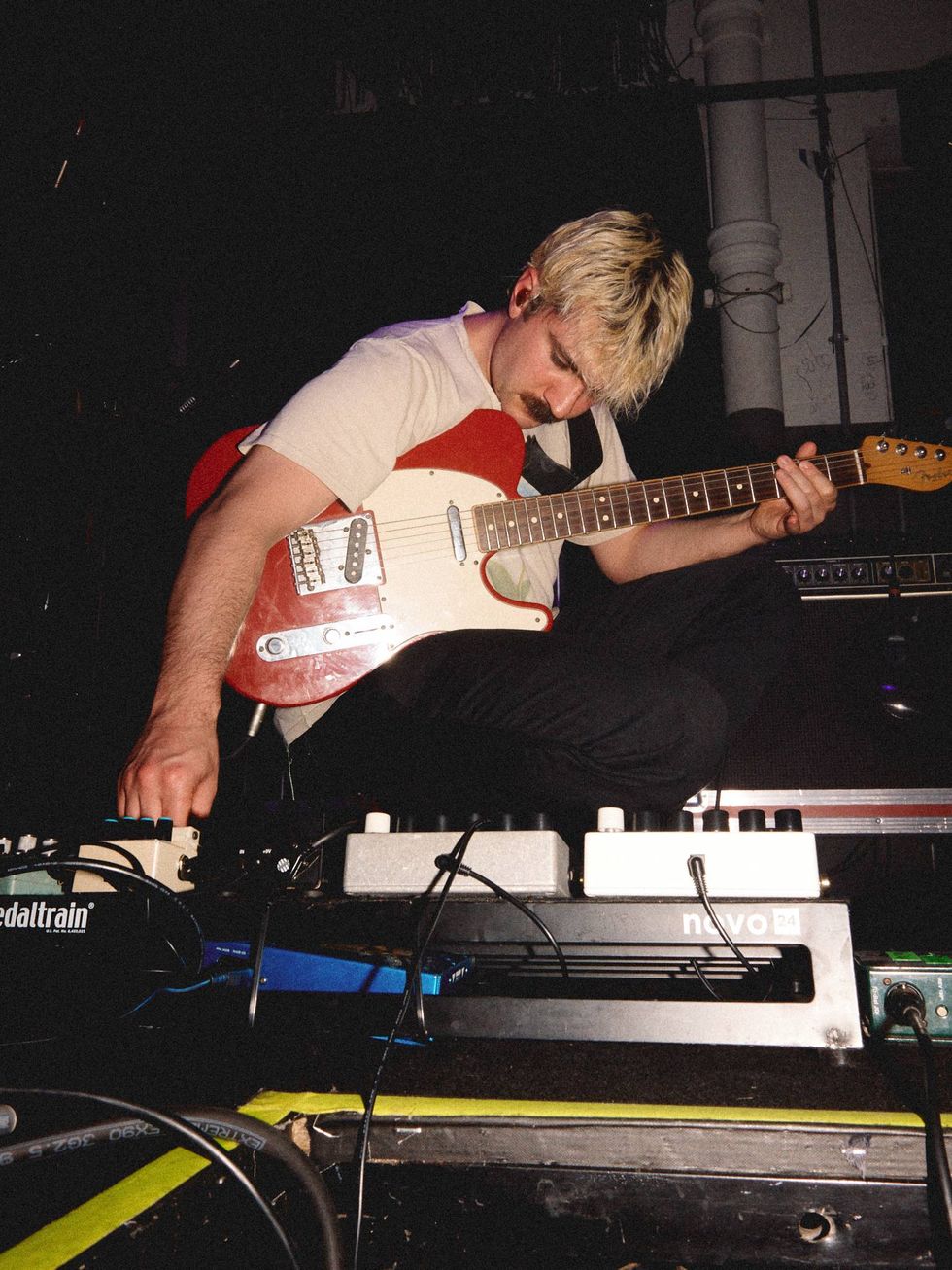"Things ain’t what they
used to be.” We often
hear that well-worn phrase
coming from individuals who
don’t want to look ahead. But,
like all clichés, there’s an element
of truth to it—especially
when it comes to modern
record production. So why
is it that so many of us are
still drawn to stuff from the
past—things like classic songs
and albums? Was it the endless
budgets, elevated musicianship,
top-flight studios and
engineers, record-company
support, and intense competition
among peers that created
timeless music, or was that
magic simply the sound of
another era? Just last week, I
was having this discussion with
Al Di Meola, and he offered a
slightly different—if somewhat
startling—perspective.
“You listen to those old records we grew up with,” Di Meola said, “and they are just so good. There was another thing happening at the time, and it was total focus. We don’t have that anymore—our whole landscape has changed because of society’s compulsion to be fully connected at all times. We’re constantly on our cell phones—talking, reading and sending emails, texting, checking our Facebook pages, and tweeting. There’s no longer a time, like we had back then, when you’re completely focused on your work. And when we went home [back then], we immediately played music on our stereo. We didn’t have a computer to run to. We didn’t even have, at one point, a message machine to check! There was so much less involvement with networking and constantly responding to people. There was nothing but the music.
“When you listen back to those records, they are phenomenal, and it’s obvious the musicians were thinking about nothing but the music. Sure, today we can do many more things with Pro Tools—we’ve got a lot more channels and many more sounds—but it actually takes far longer to make a record. That’s because our focus is fragmented all over the place. If you took all that time we waste playing with our gadgets and applied it to the music, would the product be better? In my estimation, absolutely. That’s one of the many things that have changed in this business.
“Back then, we were playing more. That’s what you spent your time on—your instrument. Also, there was an absolute focus on the project when you were in the studio. None of the other musicians were answering their cell phones, or texting and tweeting. Everybody was more involved in the project—paying attention to the tracks, commenting and reacting to the music. Listening back to records from that era, you ask yourself, how come there aren’t any records like this today?
“I’d like to ask every musician I work with to leave their laptop and cell phone at the hotel when they’re recording with me, but that would be difficult or impossible. Everyone—including me—is constantly checking in. But for what?
“Look at something like Casino [Di Meola’s epic 1978 album] . . . I was simply more involved in my work when I made that record—I paid attention to every detail more intently because there were no distractions. Today, everyone is so scattered. Personally, I feel it’s an epidemic problem. “We can’t, unfortunately, go backward from new technology. That’s not going to happen. But once you identify ‘constant connectivity’ as a problem, then you can address the issue by being disciplined about your music and how you spend your creative time and energy. Turn off the devices that distract you, limit your time on machines, and think about nothing but the music. Ironically, this is advice we give to kids and teenagers about their TV and computer usage, but so often we don‘t follow it ourselves.”
Di Meola’s words got me thinking about experiences I’ve recently had producing records, and he’s right: Not long ago, I was cutting solos in the studio with a guitarist who had two cell phones on his music stand. He would stop playing right in the middle of his solo to take phone calls! Out of frustration, I finally yelled at him, “Shut those freaking things off!” It wasn’t pretty. And it’s not a great way to make lasting music.
Another well-respected artist whose record I was engineering was incredibly distracted by his phone. He was trying to manage his business affairs while laying down tracks. I asked him repeatedly if we could simply resume work at another time, but he wouldn’t hear of it. I knew his mind was not intently focused on his work, and the end product, in my opinion, reflected that.
This is just something to think about. As Di Meola stated, we can’t go backward and reverse the spread of cell phones and computers, nor can we eliminate our odd compulsion to be totally connected to everyone we know and everything that’s happening with them. But when you sit down to make your next recording, write your next piece of music, or simply explore your guitar, do yourself a favor and turn it all off. For the sake of your project and music, do whatever it takes to achieve total focus.
 Rich Tozzoli is a
Grammy-nominated
engineer and mixer who
has worked with artists
ranging from Al Di
Meola to David Bowie.
A life-long guitarist, he’s
also the author of Pro Tools Surround
Sound Mixing and composes for the
likes of Fox NFL, Discovery Channel,
Nickelodeon, and HBO.
Rich Tozzoli is a
Grammy-nominated
engineer and mixer who
has worked with artists
ranging from Al Di
Meola to David Bowie.
A life-long guitarist, he’s
also the author of Pro Tools Surround
Sound Mixing and composes for the
likes of Fox NFL, Discovery Channel,
Nickelodeon, and HBO.
“You listen to those old records we grew up with,” Di Meola said, “and they are just so good. There was another thing happening at the time, and it was total focus. We don’t have that anymore—our whole landscape has changed because of society’s compulsion to be fully connected at all times. We’re constantly on our cell phones—talking, reading and sending emails, texting, checking our Facebook pages, and tweeting. There’s no longer a time, like we had back then, when you’re completely focused on your work. And when we went home [back then], we immediately played music on our stereo. We didn’t have a computer to run to. We didn’t even have, at one point, a message machine to check! There was so much less involvement with networking and constantly responding to people. There was nothing but the music.
“When you listen back to those records, they are phenomenal, and it’s obvious the musicians were thinking about nothing but the music. Sure, today we can do many more things with Pro Tools—we’ve got a lot more channels and many more sounds—but it actually takes far longer to make a record. That’s because our focus is fragmented all over the place. If you took all that time we waste playing with our gadgets and applied it to the music, would the product be better? In my estimation, absolutely. That’s one of the many things that have changed in this business.
“Back then, we were playing more. That’s what you spent your time on—your instrument. Also, there was an absolute focus on the project when you were in the studio. None of the other musicians were answering their cell phones, or texting and tweeting. Everybody was more involved in the project—paying attention to the tracks, commenting and reacting to the music. Listening back to records from that era, you ask yourself, how come there aren’t any records like this today?
“I’d like to ask every musician I work with to leave their laptop and cell phone at the hotel when they’re recording with me, but that would be difficult or impossible. Everyone—including me—is constantly checking in. But for what?
“Look at something like Casino [Di Meola’s epic 1978 album] . . . I was simply more involved in my work when I made that record—I paid attention to every detail more intently because there were no distractions. Today, everyone is so scattered. Personally, I feel it’s an epidemic problem. “We can’t, unfortunately, go backward from new technology. That’s not going to happen. But once you identify ‘constant connectivity’ as a problem, then you can address the issue by being disciplined about your music and how you spend your creative time and energy. Turn off the devices that distract you, limit your time on machines, and think about nothing but the music. Ironically, this is advice we give to kids and teenagers about their TV and computer usage, but so often we don‘t follow it ourselves.”
Di Meola’s words got me thinking about experiences I’ve recently had producing records, and he’s right: Not long ago, I was cutting solos in the studio with a guitarist who had two cell phones on his music stand. He would stop playing right in the middle of his solo to take phone calls! Out of frustration, I finally yelled at him, “Shut those freaking things off!” It wasn’t pretty. And it’s not a great way to make lasting music.
Another well-respected artist whose record I was engineering was incredibly distracted by his phone. He was trying to manage his business affairs while laying down tracks. I asked him repeatedly if we could simply resume work at another time, but he wouldn’t hear of it. I knew his mind was not intently focused on his work, and the end product, in my opinion, reflected that.
This is just something to think about. As Di Meola stated, we can’t go backward and reverse the spread of cell phones and computers, nor can we eliminate our odd compulsion to be totally connected to everyone we know and everything that’s happening with them. But when you sit down to make your next recording, write your next piece of music, or simply explore your guitar, do yourself a favor and turn it all off. For the sake of your project and music, do whatever it takes to achieve total focus.
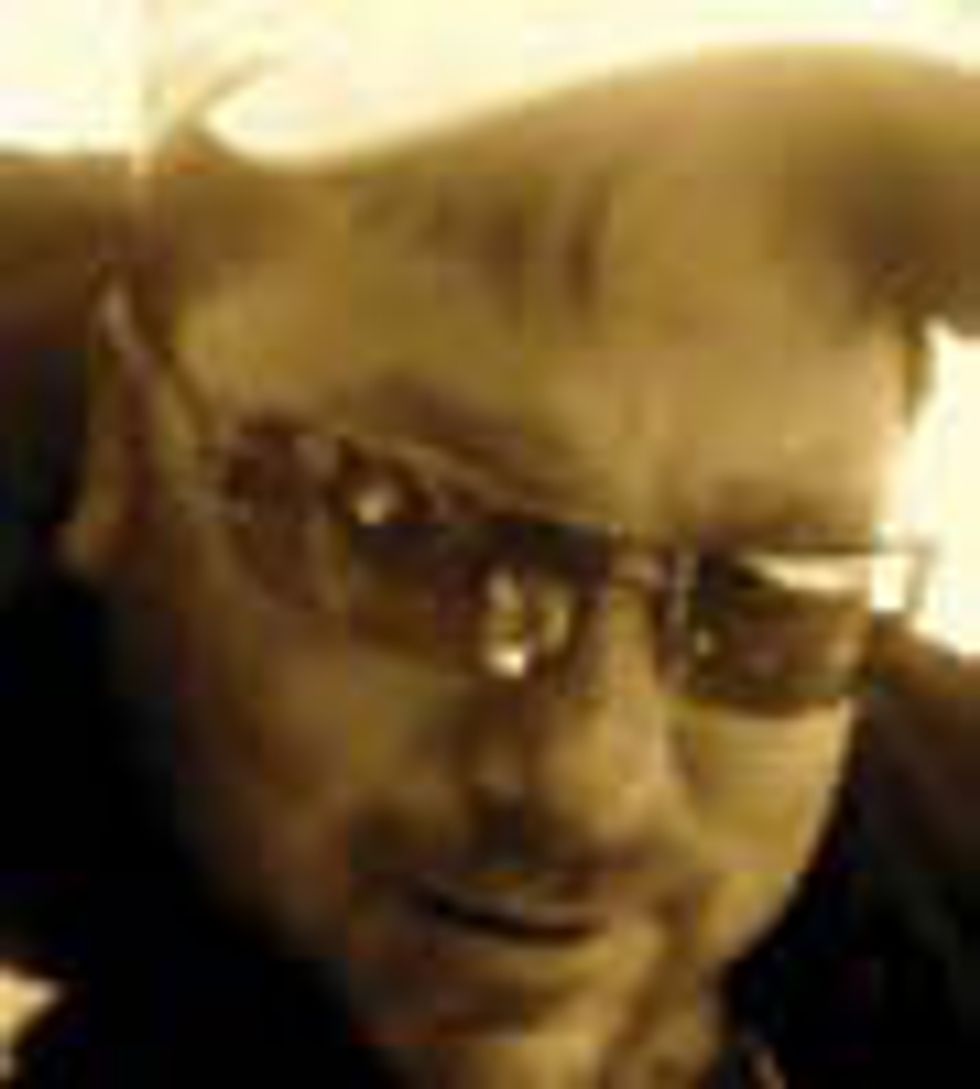 Rich Tozzoli is a
Grammy-nominated
engineer and mixer who
has worked with artists
ranging from Al Di
Meola to David Bowie.
A life-long guitarist, he’s
also the author of Pro Tools Surround
Sound Mixing and composes for the
likes of Fox NFL, Discovery Channel,
Nickelodeon, and HBO.
Rich Tozzoli is a
Grammy-nominated
engineer and mixer who
has worked with artists
ranging from Al Di
Meola to David Bowie.
A life-long guitarist, he’s
also the author of Pro Tools Surround
Sound Mixing and composes for the
likes of Fox NFL, Discovery Channel,
Nickelodeon, and HBO.



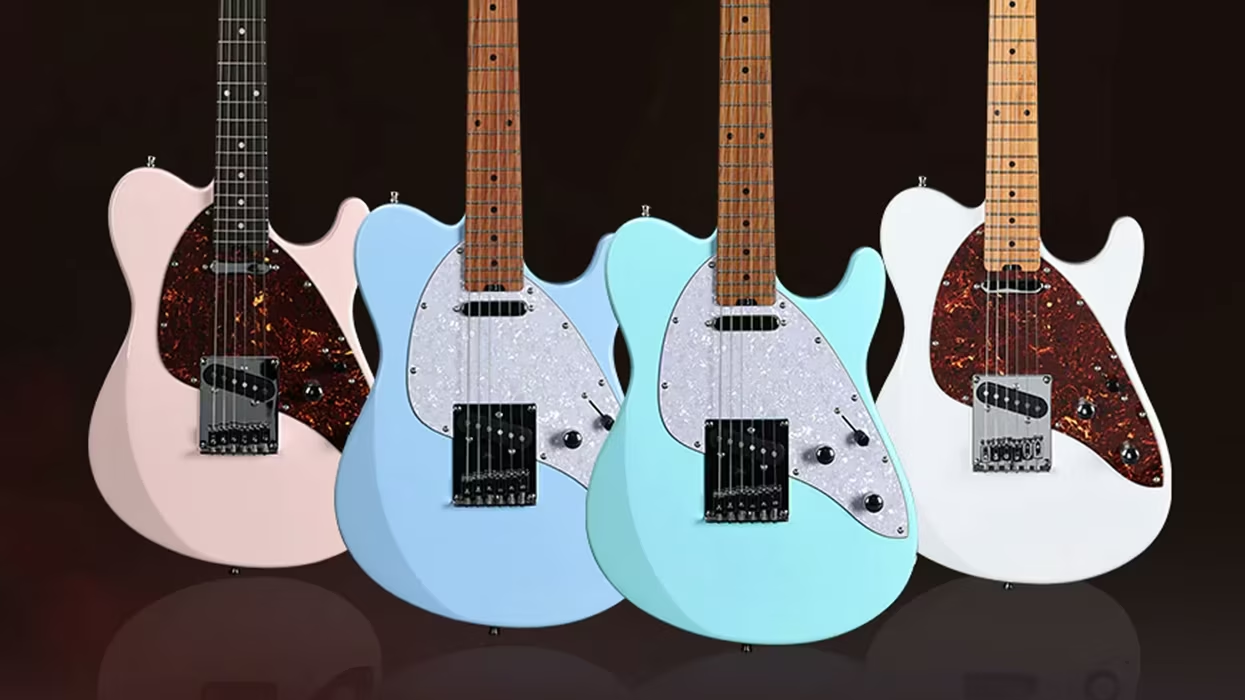

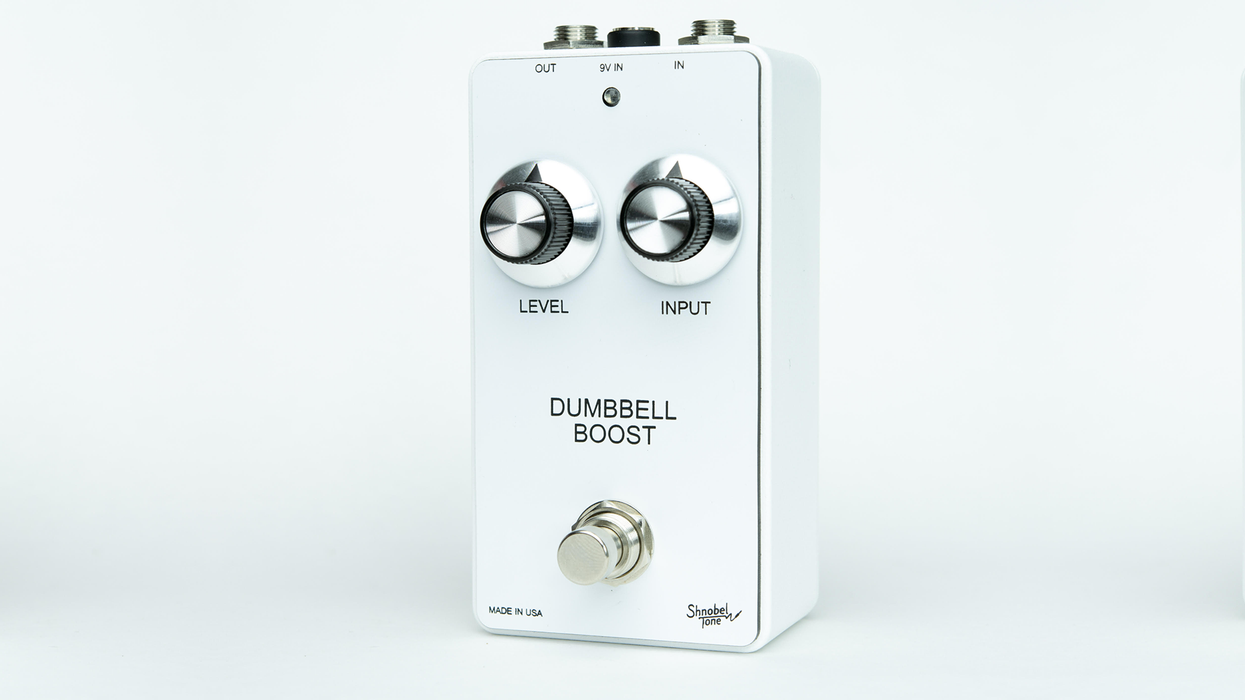
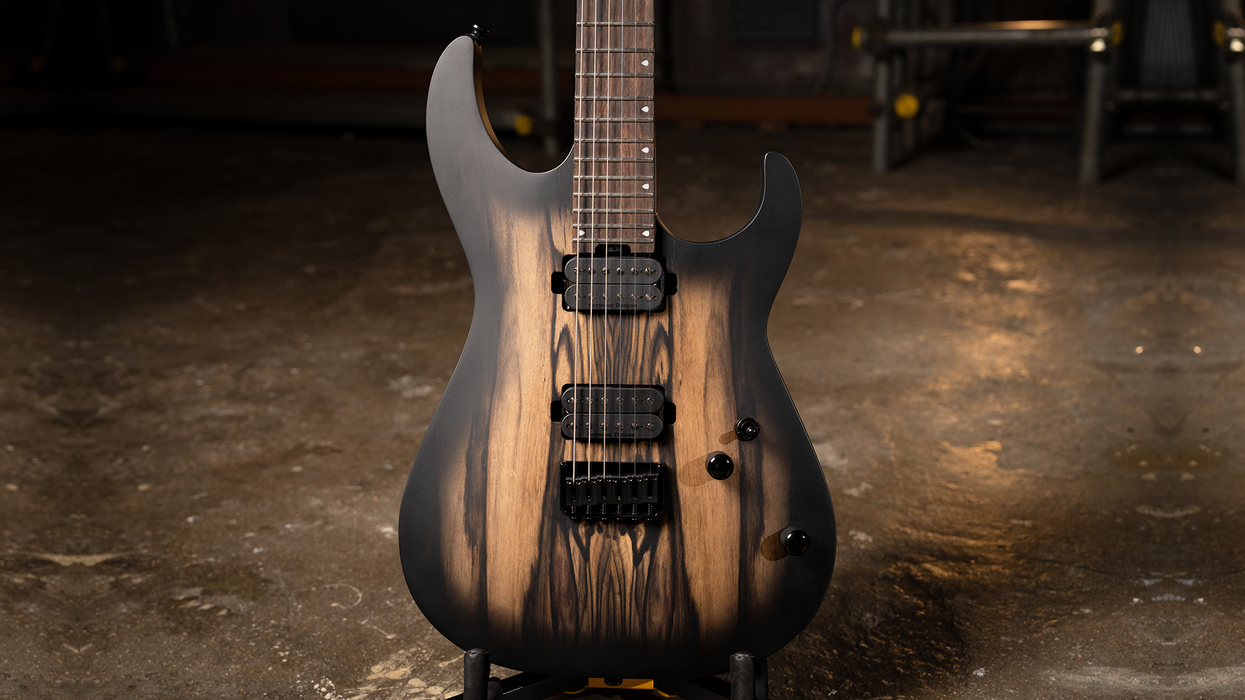




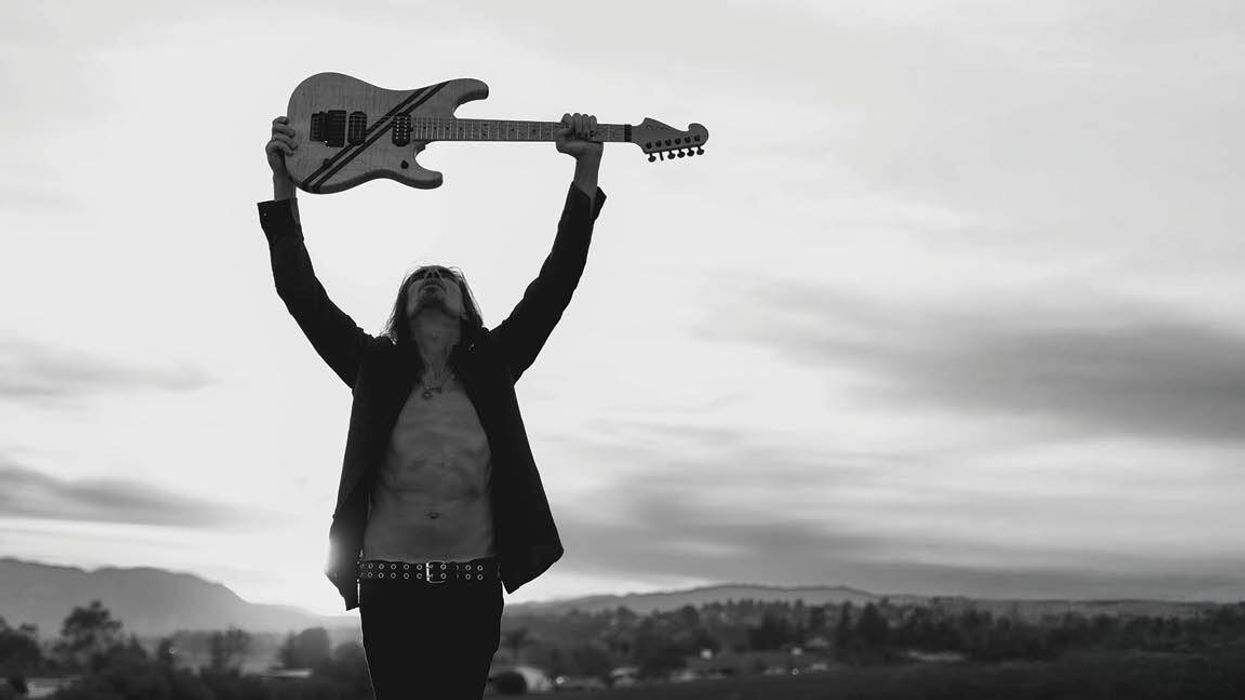
![Rig Rundown: Russian Circles’ Mike Sullivan [2025]](https://www.premierguitar.com/media-library/youtube.jpg?id=62303631&width=1245&height=700&quality=70&coordinates=0%2C0%2C0%2C0)
